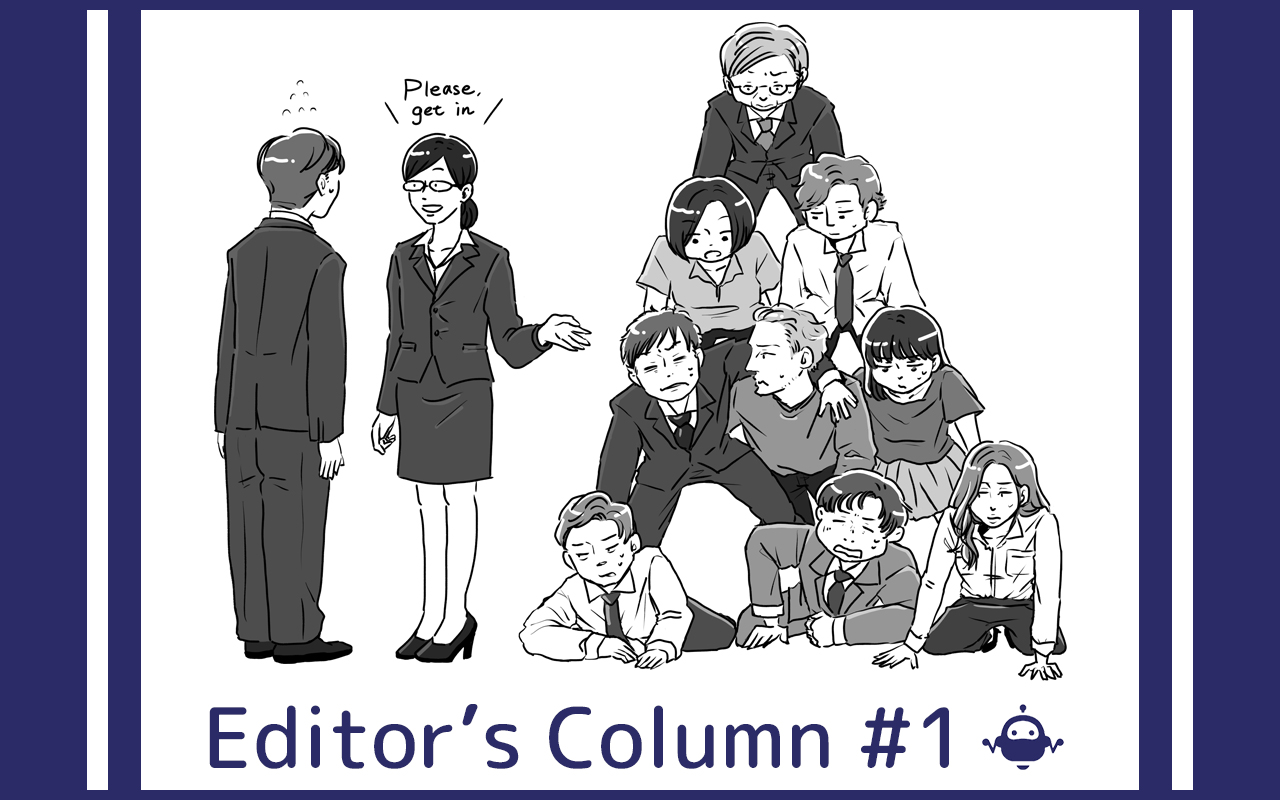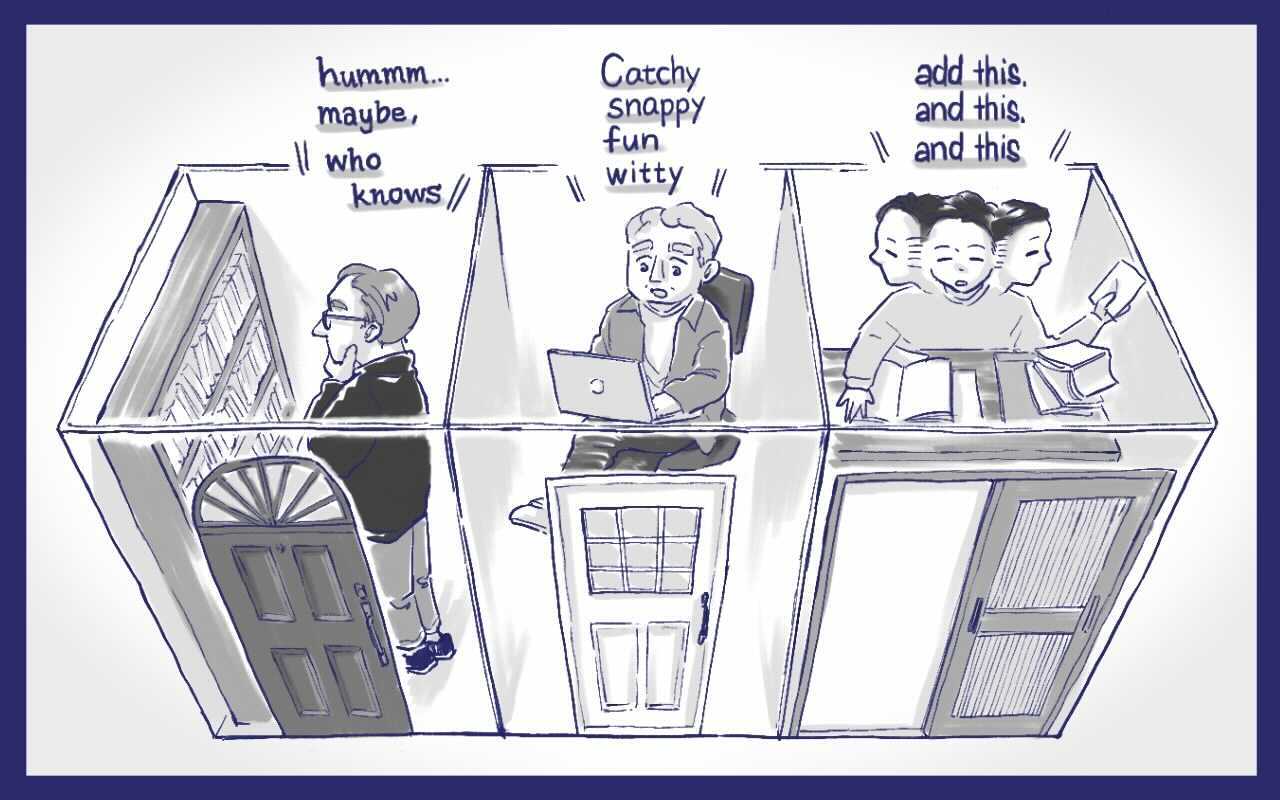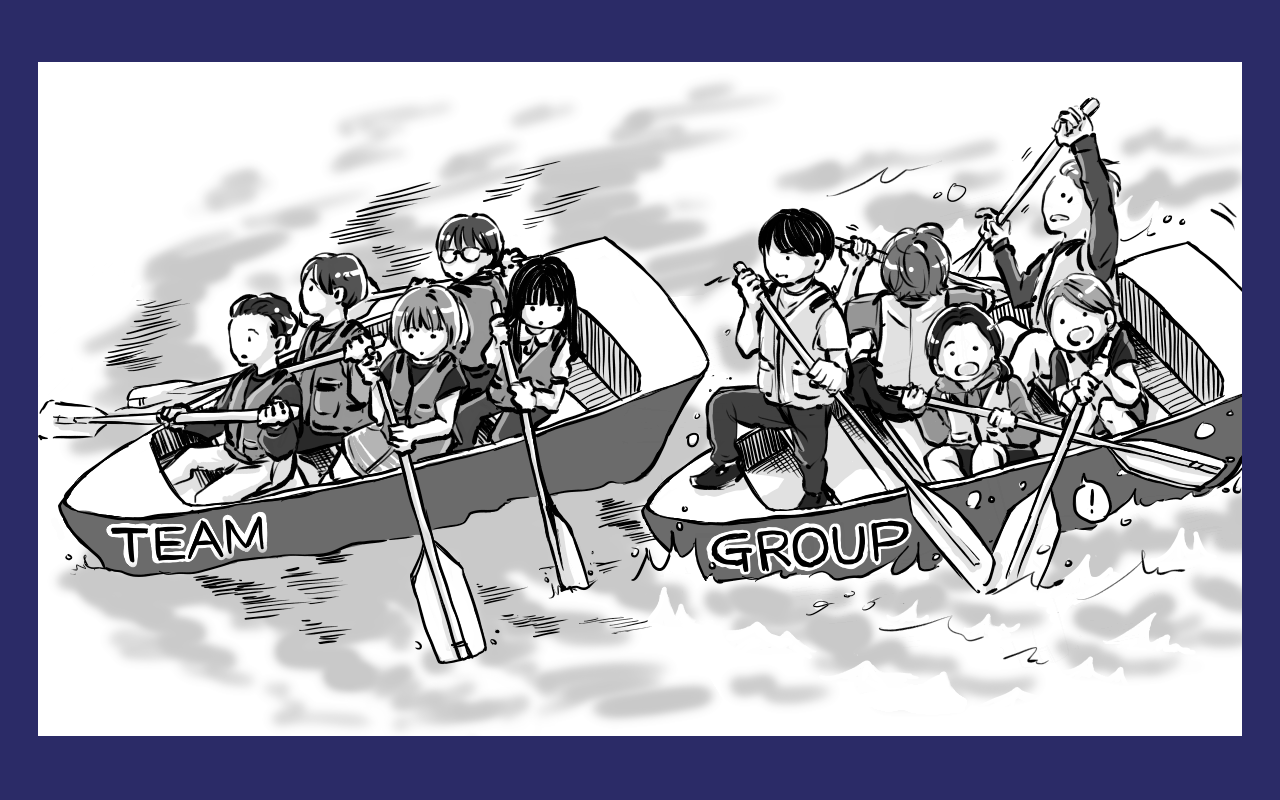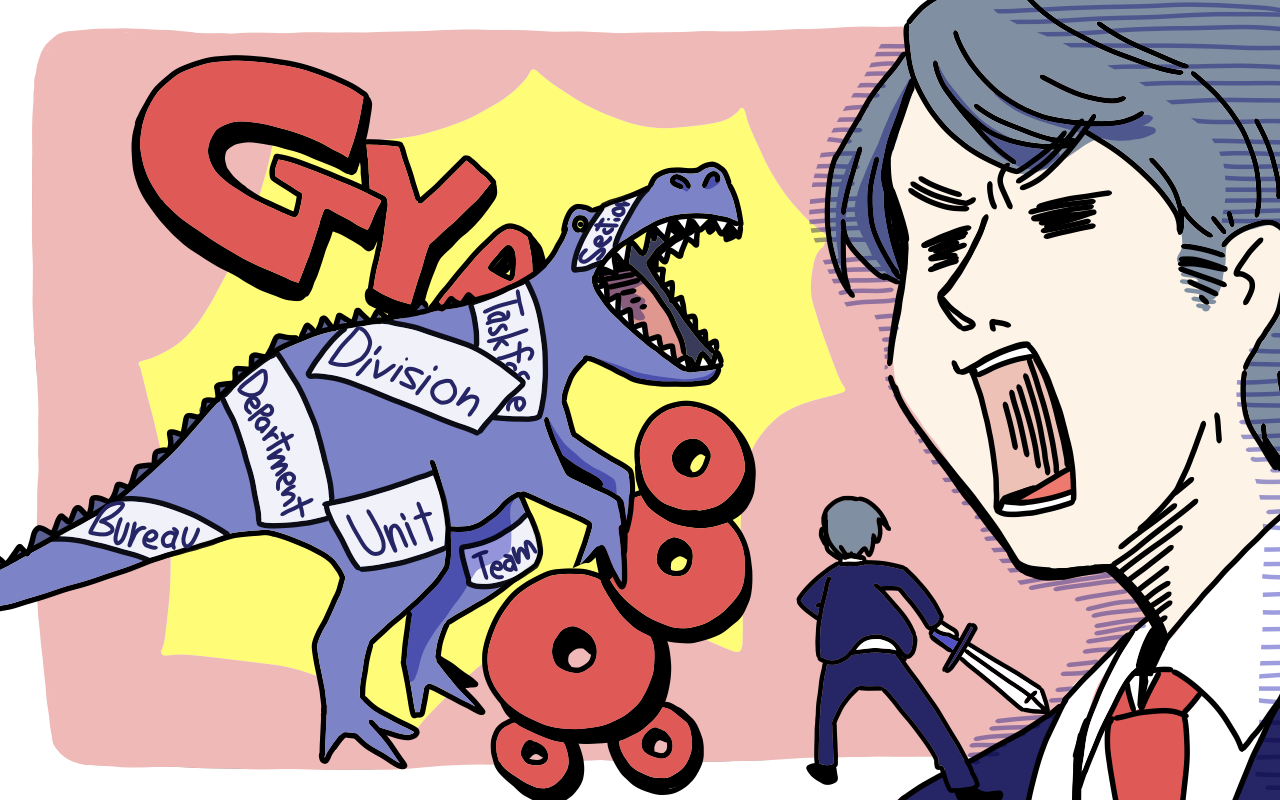The Best Way to Get Millennials to Work is to Let Us

I've been in the workforce for only five years, and yet somehow I've already spent far more time than I'd like to admit doing astoundingly meaningless tasks. I'm sure many from my generation can relate—I have wasted more hours transcribing and formatting meeting minutes than anybody has ever spent reading them. I have made layered folders to manage spreadsheets that would be outdated the moment I updated them. I have been given half a day to prepare for an hour-long meeting, spending the first 15 minutes on actual preparation and the remaining 225 on ensuring that each briefing book was perfectly perpendicular to the meeting table.
While this torrent of pointlessness was chipping away at my youthful idealism, seemingly every newspaper, blog and television program was putting forward elaborate explanations as to how my generation is just the worst. I'm a millennial—the generation that ruined home ownership, divorce, reproduction and mayonnaise (among dozens of other things rigorously compiled in listicles across the internet). One of the more esteemed items on our alleged snowflake kill list: hard work.
Millennials have been branded as lazy, entitled and hard to work with. We have been said to only accept deeply meaningful work with a high enough salary to afford the silkiest of almond milk turmeric lattes. Since we're not going anywhere—in many countries, we're the largest generation in the workforce—companies have to hire us in droves, trying to lure in the best of the best with what they think truly appeals to us: couches in the office, a lax dress code, a free lunch bar and the ability to choose our work hours.
Don't get me wrong, I'm not against these perks. I'm glad sweaty and uncomfortable business suits are on the decline, and I would choose a hammock over an office chair any day. However, what many employers still struggle with is that whether done in a stuffy cubicle or a trendy café, meaningless work is depressing.
Here's my suggestion: What if, instead of trying to lure my generation in with free lunch and unlimited vacation, companies reel us in with the promise of work that makes sense? Working from home is great, but not if the work I'm doing is tasks my boss came up with to "keep me busy." Putting us on big projects is motivating—unless we're only there to listen and not touch anything.
Millennials grew up with greater access to data and information than any prior generation. The time has come for us to use that information to overturn antiquated work models.
Buried inside the pyramid
I believe there are two main factors driving millennial disillusionment toward work. The first is pointlessness of content, wherein the work we do doesn't seem to serve any purpose other than to keep us busy. It's hard to feel like we're having a meaningful impact when our supervisors preface most of the tasks they give us with "This isn't that important, but it would be nice to have."
The second is pointlessness of process, wherein our work seems interesting on paper, but in reality we spend so much time digging through layers of approval, confirmation, quality control and compliance that we never quite reach the core of what motivated us in the first place.
Of these two, much more ink has been spilled complaining about pointlessness of content. The internet is full of testimonies by cynical office workers who have come to realize that if their job ceased to exist, nobody would notice. To me however, pointlessness of process is more interesting.
My first employer out of university was the government of my home country. Granted, government work doesn't have the best reputation, but my job was fascinating. I worked with other governments around the world, crafting responses to some of the most pressing developments in global geopolitics. The feeling of participating in a global forum gave me purpose and drive.
That is, until I actually tried to do anything. As a young employee, I was hardly ever expected to give my opinion. I was the bottommost brick of a massive pyramid, simply handing information upward and dealing with what was given back to me (which often was nothing at all). I had a nice office, a great salary and a prestigious title, but limited value to my employer.
Since I wasn't doing much in the way of substance, I had to justify my salary by excelling at process. When I wrote an email to disseminate my reports, I would make sure that each recipient was ordered by their rank in the pyramid. As the youngest in most meetings, it was my duty to sit at the far end of the table and take precise minutes. If none of my seniors had time to attend a briefing, I would eagerly volunteer to go in their stead.
When the higher-ups discovered I was a native English speaker with decent writing skills, I became a ghost writer. I drafted dozens of speeches, addresses and press releases for all levels of government. Given my passion for writing, one might think I was over the moon—and I was, at first.
However, another problem with the mighty pyramid of hierarchy is that it isn't just the product of our labor that gets handed upward. So does the credit. I still have vivid memories of spending a week crafting an eloquent five-page speech just to have someone above me add a couple of commas, claim ownership and bask in praise.
On top of all of this Kafkaesque nonsense, what grated my nerves the most was that my time wasn't being valued. Given that everything significant required confirmation and approval, I spent a ludicrous amount of time waiting. The fundamental flaw of most pyramidal organizations is that information will naturally bottleneck as it works its way to the top, resulting in delays at every level and ultimately a phenomenal loss of productivity.
This didn't mean I wasn't busy. While I waited for green lights, I was given the "keep him busy" tasks: spreadsheets to be updated, meeting minutes to be put into a prettier format, emails that needed to be rearranged into new folders, and so on.
I was trapped. I wasn't given any autonomy because I lacked meaningful experience, but I couldn't gain meaningful experience because I wasn't trusted with any autonomy.
What if motivation to work came from the work itself?
The few times I tried to make this point to higher-ups, I was met with some version of either "That's just how we do things here," "We all have to go through that stage," or "All concerned parties need to give their approval." The first two are just lazy excuses, so let's focus on the last one. Asking for everyone's approval before moving forward seems like the most natural thing in the world, especially for young employees. However, this conveniently simple logic overshadows a more complex reality.
In theory, having a strict hierarchy within an organization makes sense—those with experience guide the newbies toward enlightenment by having them perform tasks with increasing levels of difficulty and responsibility. Hierarchies help people grow, develop and reach their full potential over time. Supervisors motivate their young staff to do their best, while the young ones feel nurtured and cared for. At the same time, supervisors take responsibility for those in their care, much like a parent would be held responsible for the actions of their children.
This thinking is flawed on several levels. First of all, it puts the onus on supervisors to create the entire environment in which their employees are supposed to grow. Let's face it, if you've ever supervised someone, you know full well that you cannot be in control of everything they're doing. Especially in a position that requires any degree of creativity or critical thinking, if people are not given autonomy and responsibility, they cannot be expected to perform and grow to their fullest potential.
Also, motivation should not be the responsibility of employers. In my first job, salary was supposed to be the big motivator. Trouble is, if your salary is the only thing motivating you, you'll end up spending more time thinking about shopping and travel than about work.
Sometimes human relations can be motivating, which is certainly a step above salary. Getting along with colleagues can have deep benefits for happiness and belonging, but relationships are not enough to make work meaningful.
In my university years, I was pretty big on video games. I would spend countless hours running back and forth between virtual cities, killing monsters and collecting items to level up my character. Thinking back to those days, I wonder—why was I extremely motivated to do repetitive and boring work for pixelated rewards in a video game, but not nearly as motivated to do similarly boring work that could actually have tangible benefits in the real world?
There is plenty of research on the matter, but for me the ultimate answer is ownership. When I was developing my character in a video game, through my own labor I was making a reflection of myself stronger, more reliable, more badass. In the real world, my tasks didn't serve a recognizable purpose, reward and recognition was distributed unfairly, and ultimately my work wasn't helping me become the person I wanted to be.
This got me wondering: Could I find a job where I derived a sense of purpose from my day-to-day tasks, rather than my salary or my title? Was there an organizational structure where, while still feeling a sense of security, I could have ownership over my work?
Was there a job that would allow me to do something I wanted in a way that made sense?
It turns out, the beginnings of an answer were waiting for me in Japan.
From autocracy to autonomy
After three years, I left the government to pursue my dream: living in Japan. I moved to Tokyo, studied for two years in a Japanese language school, and ultimately decided that to deepen my understanding of the local language and culture, I had to get a job here.
Japan is notorious for its insane work culture, replete with soul-crushing overtime, deep-seeded protocol and mind-numbing hierarchy. I was given a laundry list of cultural relics I had to look forward to—things like pouring tea for higher-ups, running around offices getting stamps of approval from my superiors (known in Japan as ringisho, 稟議書), and waiting until my boss left the office before I could leave.
Yet somehow, the company I ended up in doesn't have any of those antiquities. As I'm writing these lines, I'm sitting in my own living room on a Wednesday afternoon, dressed in (very) casual wear with no boss looking over my shoulder.
The way my company approaches work is to let its new hires make mistakes, as long as we're open about them, take responsibility for them, and grow from them. My bosses are available if I want to ask them anything, but other than that they don't get too deeply involved in what I'm doing (unless I risk tanking the entire company).
This approach isn't devoid of challenges. Getting started was extremely difficult, since I no longer had the bedrock of support and nurture than I had gotten used to. Instead of being proactively given explanations, I was expected to ask questions—which is challenging when in a new job with no frame of reference. There were times when I felt my boss didn't have my back, or that things could have gone much smoother had I been given more help and support at critical times in my projects.
The biggest difference is, I'm not only responsible for completing my tasks, I'm also in charge of setting up the processes that work best for me. I no longer have a chain of command up which I have to send every document for confirmation and review. Instead, I'm part of a dynamic network, where the impetus for seeking advice and review comes not from a set of compliance guidelines, but from my own sense of responsibility.
It's terrifying to know that if I do a bad job, it's entirely on me. But at the same time, it's deeply gratifying to know that if I do a good job, it gets recognized. The reward system makes sense.
New workstyle for a new generation
Overall, the benefits of autonomy far outweigh the costs. Sure, millennials will make mistakes at work—everybody does. But it's about time that companies realize it's costing them much more money to try to prevent every little mistake than it would to just absorb the cost of those mistakes and treat them as a learning opportunity.
I keep hearing that millennials are these fragile snowflakes that need to be approached with care, lest they melt down. I can't help but wonder if that's not a self-fulfilling prophecy. I have seen some people of my generation that fit that description, but they are the exception: the by-product of an overly-protective environment treating them with unjustifiable caution their entire lives.
For most of us, our life experience has been very different. Put us in an environment where we have to fend for ourselves and we will rise to the occasion, just like any generation that came before us. Hear us out when we put forward bold ideas and we can find solutions for problems that seemed unfixable. Give us room for creativity and innovation and we will revolutionize the world we live in.
To my older readers who may be wondering what to do with your millennial workforce—give them a chance. If you keep babysitting your employees, don't come back and complain that your employees are a bunch of babies. You may not understand how we work, grow tired of our questions, or think we're entitled just because we reject the status quo, but if you open your mind enough, you may come to find that our questions come from a place of genuine curiosity and inquisitiveness. If channeled properly, that curiosity has the power to change the world.
And to my fellow millennials, if you have the chance to be autonomous in your work, seize it with both hands and don't let go. There are more people living on our planet than ever before, which means that our economies are also becoming more complex and competitive than ever. It's easy to become jaded; to get into a job and complain endlessly that you're either bored and not being given enough to do, or that you're overwhelmed by a myriad of inconsequential tasks. Sadly that's the reality we live in, but that also means it's up to us to change it. The internet has granted us access to more information and resources than any generation that came before us. Let's use this newfound power to break the synonymy between "work" and "hardship." If we don't come up with new ways to find happiness and meaning in our work, nobody's going to do it for us.
Written by Alex Steullet. Edited by Michelle Adams and Richard Ho. Illustration by yummi.
Writer

Alex Steullet
Alex is the editor in chief of Kintopia and part of the corporate branding department at Cybozu. He holds an LLM in Human Rights Law from the University of Nottingham and previously worked for the Swiss government.
Photographer

yummi
After gratuating from the Nihon University College of Art, yummi began working as a freelance artist. In 2015, she received an honorable mention at the 2nd The Gate competition for her work "Sanpei-sensei No Jikan" (In Her Class), as well as an excellence award at the 69th Tetsuya Chiba competition for “Himitsu No Hanazono-san” (“The Secret Girl”).




